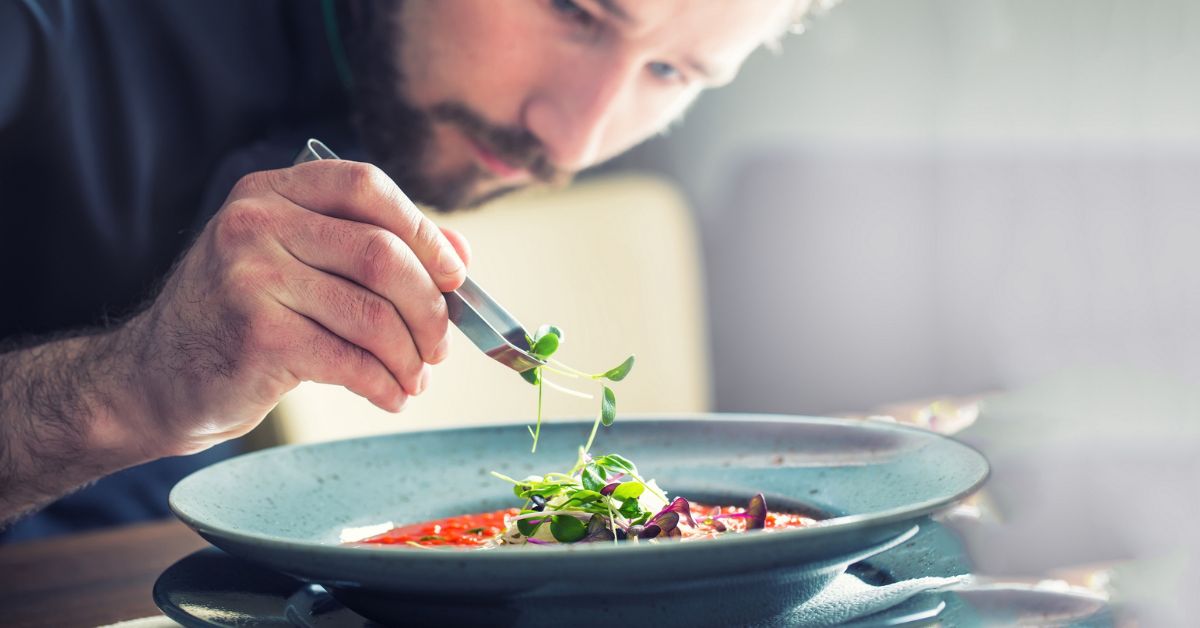DUBAI, UAE – Commitment, market awareness, and adaptability are the keys to success in Dubai’s competitive food and beverage (F&B) industry, an expert told TRENDS in an interview.
Thanks to the blooming F&B sector, a vibrant and diverse culinary market has made the emirate a global dining destination that offers a range of dining options to suit various tastes and budgets.
All this has made the industry highly competitive. Over 20,000 eating spots operate throughout the city, and new restaurants open regularly, making it difficult for businesses to stand out and attract customers.

“To thrive in this bustling city, businesses need to stay updated with the ever-changing market and industry trends,” says Deepti Chawla, Founder & Director of Infiniti Holdings & DCloud Kitchens.
“The F&B industry in Dubai is known for its high standards, and only those truly dedicated to providing exceptional experiences can stand out,” she said.
Furthermore, Chawla said staying abreast of market and industry trends is essential. “Dubai is a dynamic city with a diverse and discerning customer base. By understanding the preferences and demands of local and international clientele, businesses can tailor their offerings to meet and exceed expectations. This requires continuous research and monitoring of consumer preferences, emerging culinary trends, and innovative approaches to F&B,” she added.
In addition to commitment and market awareness, success in Dubai’s F&B scene requires adaptability. The tourism mechanism, influx of events, and global travel scenarios significantly impact the industry.
“Businesses must be flexible and responsive to changing circumstances, such as adjusting menus or service offerings to cater to specific events or cultural celebrations. The ability to quickly adapt to new trends and customer demands ensures that F&B establishments remain relevant and appealing,” Chawla said. “Perseverance and hard work are integral components of the secret to success in Dubai’s F&B scene.”
“The competition can be fierce, and challenges may arise. However, by staying focused, maintaining a strong work ethic, and continuously seeking improvement, businesses can overcome obstacles and achieve long-term success. Uniqueness is a magnet that draws people in, making them inclined to try something different,” she mentioned.
The growing number of restaurants, fast-food chains, and food delivery services provide consumers with a better customer experience and more options, resulting in solid growth in the food and beverage industry.

The market provides numerous opportunities for exploration and taking on new challenges. It fuels the desire to explore new frontiers through innovative flavors, captivating concepts, unusual ingredients, or enticing offers.
Data from Statista reveals that revenue from food outlet operations in the UAE is expected to reach around US$8.9 billion by 2025, up from US$8.3 billion currently.
The UAE’s F&B sector is thriving due to high disposable incomes, a diverse expat population, the rise of new cultural outlets, and the government’s emphasis on diversification and food sufficiency.
Furthermore, the influx of Asian migrants has altered the food landscape, increasing the demand for South Asian cuisine.
Additionally, veganism and health-conscious diets are becoming more popular. With these changing trends, the F&B industry has numerous opportunities to cater to various culinary preferences and create one-of-a-kind dining experiences.
On the other hand, customer preferences in this sector have changed dramatically. Customers now want fresh and insightful takes on cuisine infused with innovative flavors and a distinct approach rather than just traditional dishes. Authenticity is also essential, with guests worldwide looking for authentic culinary experiences.
“To meet these changing preferences, we strive for a balance of authenticity and innovation. Our goal is to combine traditional flavors with creative techniques, providing customers with a memorable and distinct dining experience,” Chawla explained.
She went on to say that customers’ expectations of affordability have also changed.
“Expenses tend to rise as competition increases,” Chawla pointed out. “However, our brands are committed to catering to a broad audience, ensuring that customers feel they can afford and enjoy our offerings at the same time. We aim to make exceptional dining accessible to a wider audience, fostering inclusivity in the F&B industry.”
On another note, sustainability and farm-to-table concepts are positively impacting the F&B sector in the Gulf countries. They drive demand for sustainable practices, local sourcing, and fresher food, all of which are beneficial for the environment, the economy, and consumers’ health.
“We prioritize sustainability within our brands by promoting a healthy diet and sourcing fresh ingredients globally. Our dedication to using high-quality, imported ingredients helps our restaurants stand out from the competition,” Chawla highlighted.
In addition to authenticity and uniqueness, we are embracing the farm-to-table concept in our new ventures and brands. We aim to offer a healthy dining experience by focusing on locally sourced, fresh ingredients. This strategy aligns with the growing consumer demand for environmentally friendly and sustainable practices in the food and beverage sector.
“While we offer a wide variety of cuisines through our brands, we strive to represent the flavors and cultures of a global audience,” Chawla said. “By embracing this idea, we contribute to a culinary landscape that is both healthier and more environmentally conscious.”








